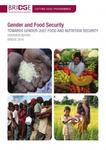Learning from ODF districts in Mozambique
Mozambique has committed to achieving the UN Sustainable Development Goal (SDG) 6.2 to achieve access to adequate and equitable sanitation and hygiene for all and end open defecation by 2030. Much progress
Mozambique has committed to achieving the UN Sustainable Development Goal (SDG) 6.2 to achieve access to adequate and equitable sanitation and hygiene for all and end open defecation by 2030. Much progress
India’s national network of social justice activists and civil society organisations helped achieve legal recognition for the Right to Food in the early 2000’s and are engaged in an ongoing struggle to
The world is in the midst of a long and uneven urban transition, with the great majority of urbanisation and urban population growth now occurring in parts of Asia and Africa. Urbanisation has profound

This report investigates the role of business actors in shaping China’s renewable energy policy process and governance. It finds that with the tremendous growth of renewable industry over the past two
The green revolution and the global integration of food markets were supposed to relegate scarcity to the annals of history. So why did thousands of people in dozens of countries take to the streets when
This report presents the Hunger And Nutrition Commitment Index (HANCI) 2014. It seeks to: Rank governments on their political commitment to tackling hunger and undernutrition; Measure what governments
Integrated energy (electricity generation) policy is by no means a settled issue in the post-apartheid era in South Africa. The policy framework is predicated on the need for new and additional energy

Despite substantial economic growth, India still has one of the highest undernutrition rates in the world. Because of its large population, India is home to almost 40 per cent of the world’s stunted children.
The primary motivation behind this research is the need to accelerate the supply of renewable energy because of the important role that it plays in mitigating climate change and in fostering sustainable
From a biomedical perspective, non-communicable disease (NCD) is not a new problem, particularly in the global North. However, awareness of the increasing burden from these conditions in low- and middle-income

There is more than enough food in the world to feed everyone, but the number of people who do not have enough to eat remains unacceptably high, with disproportionate impacts on women and girls. Reversing